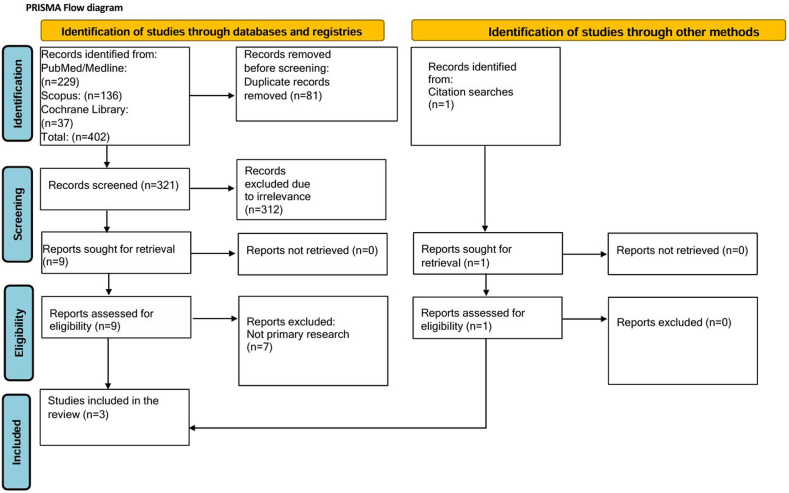间歇性禁食对生育能力的影响:对女性多囊卵巢综合征和生殖结局的关注-系统综述。
IF 2.7
引用次数: 0
摘要
简介:多囊卵巢综合征(PCOS)是一种常见的内分泌失调,以雄激素分泌过多、胰岛素抵抗和月经不规律为特征,导致许多女性不孕。越来越多的证据表明,间歇性禁食(IF),特别是限时进食(TRF),可能通过解决核心病理生理机制来改善PCOS女性的生殖和代谢结果。本系统综述探讨了IF对多囊卵巢综合征女性生育能力和生殖激素的影响。方法:在PubMed、Scopus和Cochrane图书馆中使用与间歇性禁食、生育和多囊卵巢综合征相关的预定义搜索词进行系统搜索。2014年至2024年间发表的符合条件的研究是根据系统评价和荟萃分析(PRISMA)指南的首选报告项目确定的。纳入标准针对的是评估IF对PCOS女性生殖结局、月经不规则和代谢参数影响的初步研究。使用Caldwell框架进行数据提取和质量评估。结果:本综述纳入了3项研究。TRF干预导致月经规律的显著改善,33- 40%的参与者报告月经周期正常化。观察到总睾酮、游离雄激素指数、抗本文章由计算机程序翻译,如有差异,请以英文原文为准。

The impact of intermittent fasting on fertility: A focus on polycystic ovary syndrome and reproductive outcomes in Women-A systematic review
Introduction
Polycystic Ovary Syndrome (PCOS) is a prevalent endocrine disorder characterized by hyperandrogenism, insulin resistance, and menstrual irregularities, leading to infertility in many women. Emerging evidence suggests intermittent fasting (IF), particularly time-restricted feeding (TRF), may improve reproductive and metabolic outcomes in women with PCOS by addressing core pathophysiological mechanisms. This systematic review examines the impact of IF on fertility and reproductive hormones in women with PCOS.
Methods
A systematic search was conducted in PubMed, Scopus, and Cochrane Library using predefined search terms related to intermittent fasting, fertility, and PCOS. Eligible studies published between 2014 and 2024 were identified following Preferred Reporting Items for Systematic Reviews and Meta-Analyses (PRISMA) guidelines. Inclusion criteria targeted primary research evaluating the effects of IF on reproductive outcomes, menstrual irregularities, and metabolic parameters in women with PCOS. Data extraction and quality assessment were performed using the Caldwell framework.
Results
Three studies were included in the review. TRF interventions led to significant improvements in menstrual regularity, with 33–40 % of participants reporting normalized cycles. Reductions in total testosterone, free androgen index, anti-Müllerian hormone (AMH), and luteinizing hormone (LH) levels were observed, alongside increased sex hormone-binding globulin (SHBG). TRF also improved insulin sensitivity, reduced body weight, and decreased inflammatory markers, all of which contribute to enhanced reproductive outcomes. Key outcomes included a 9 % reduction in testosterone levels, 26 % reduction in the free androgen index (FAI), and significant improvements in menstrual regularity (33–40 %).
Conclusions
Intermittent fasting, particularly TRF, shows potential as a non-pharmacological intervention to improve reproductive health and fertility in women with PCOS. By targeting hyperandrogenism, insulin resistance, and menstrual irregularities, TRF offers a promising lifestyle approach. However, larger randomized controlled trials with long-term follow-up are needed to confirm these findings and establish IF as a standard therapeutic option for PCOS management.
求助全文
通过发布文献求助,成功后即可免费获取论文全文。
去求助
来源期刊

Metabolism open
Agricultural and Biological Sciences (General), Endocrinology, Endocrinology, Diabetes and Metabolism
自引率
0.00%
发文量
0
审稿时长
40 days
 求助内容:
求助内容: 应助结果提醒方式:
应助结果提醒方式:


